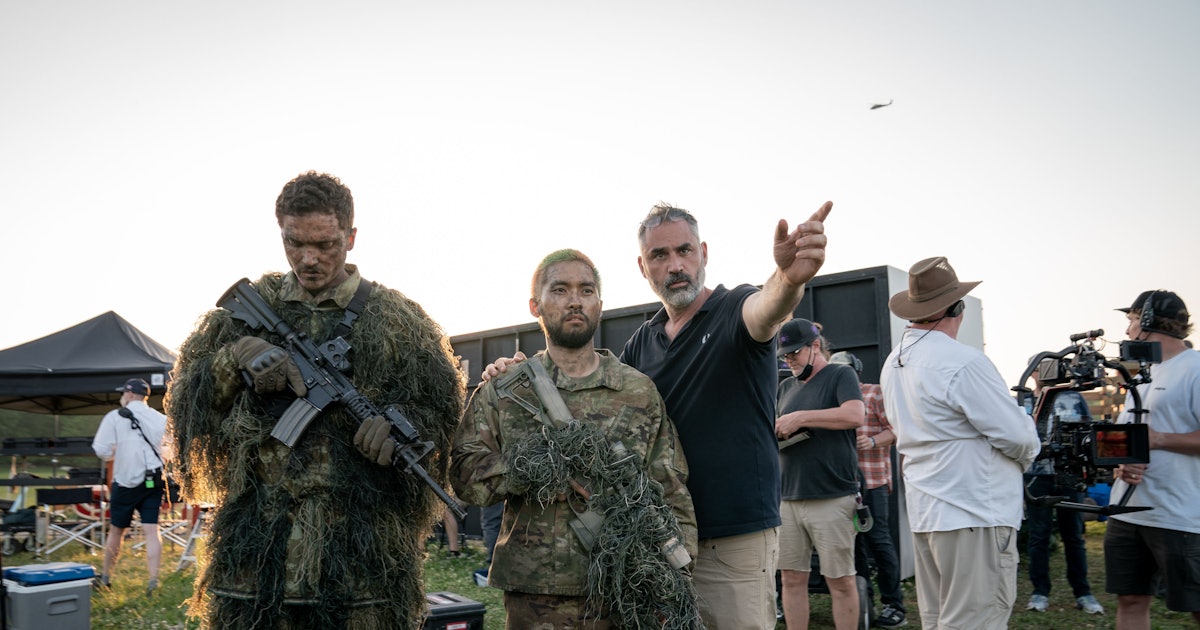So, here's my second home viewing of Civil War (and I have to say that the 4K imprint is really great -- it got 5/5 for audio and video from the Blu-Ray site -- and my experience was definitely in agreement).
Kirsten Dunst is just excellent, and i love how she looks her age -- beaten, weathered, tough exterior... but in the process of connecting with this young woman that reminds her of who she used to be at that age, she starts to lose her edge that has kept her alive all this time. THAT is the focus of the film, along with questions about the role of journalists in morally dubious situations (should they interfere with events based on their moral instincts, or should they simply capture the hard moments so that OTHER people can consider the morality of them and make future choices based on them?)
This interplay between the four of them -- Lee (Dunst), Jessie (the newb), Joel (kind of still hot-blooded and wanting to dive in), and Sammy (the voice of age and reason) -- is excellent. All of them have different reactions to Jessie kind of sneaking her way onto this road trip to DC where supposedly the capital is going to fall to the rebels in short order, and Joel and Lee really want to snag an interview / photos of the incumbent before he is shot.
I grew up in this area of the country and still live there, so many of the locations seem like I *almost* know them or just *might* have seen them before (although it's likely they are just very similar). But it makes it even more eerie.
Coming out of my second viewing, I have some new reactions. The film is bookended by shots of the incumbent -- in the opening, he's presenting a flowery speech to inspire people to fight the insurgents and bring America back together, but we realize soon it's mostly just fluff and falsehood, and then at the end he judge begs for his life after all of his supporters and staff have pretty much been shot to death just so the troops could get to him -- and it puts into context that ALL of this is because of some guy for whatever reason took another term of office / generated this kind of rebellion. He just wants to hold onto power without suffering any ramifications for his choices, and yet we get a bunch of people across the film who are fighting and killing each other in truly brutal and often callous ways, who don't even really understand why or otherwise have a strongly personal reason for it. The journalists encounter one event after another of this kind of brutality and destruction of "the other side" as if the other side are not also comprised of people, but why exactly are they all fighting?
The worst moment is when we run into Plemons' character who apparently killed a bunch of civilians just because they didn't fit with what his definition of an American is. He ends up executing a few more just because of nationality, in a completely calm and quiet way (which is terrifying) and there's no reasoning with him.
So this chain of experiences of brutality kind of jolts the old Sammy awake and he's providing the moral conscience of the group (and is willing to take action rather than just be a bystander), but it also changes Lee so that she loses her edge as she becomes more humanized and it costs her. Meanwhile, Jessie is coming into her own, after falling apart during some of the film's early events, and now just becomes reckless and detached in pursuit of the best pics.
At the end of the film, you're like, "Is this all we're left with?" It's like the guy who created this terrible violence was just a catalyst and now there was lots of awful stuff going down just triggered by prejudices and humanity's tendency to just drift into tribal mentality and lose track of why they originally disagree or what grievances are legitimate.
Garland's musical selections are typically unexpected and never cliche, and he's capable of transitioning from dark violence and blood into transcend beauty within a few moments.
I noticed this time too the young woman putting on the bomb vest in the opening sequence. (It can be easy to miss on first view, as a lot is happening, and she doesn't run in until a few minutes later.) When she runs past Lee and Jessie, she's got a huge American flag streaming behind her and Lee immediately recognizes her for what she is.... but instead of taking a PICTURE of the woman as she rushes towards the police barrier, about to detonate herself, Lee grabs Jessie and throws them both behind the protective vehicle. I wonder if that was the first moment of change for Lee. Without Jessie there, i think she would have gone for the shot. And that would have been a hell of a shot.



:max_bytes(150000):strip_icc()/Civil-War-tout-121223-68429d39ee064b9db220666c4a4db30c.jpg)
